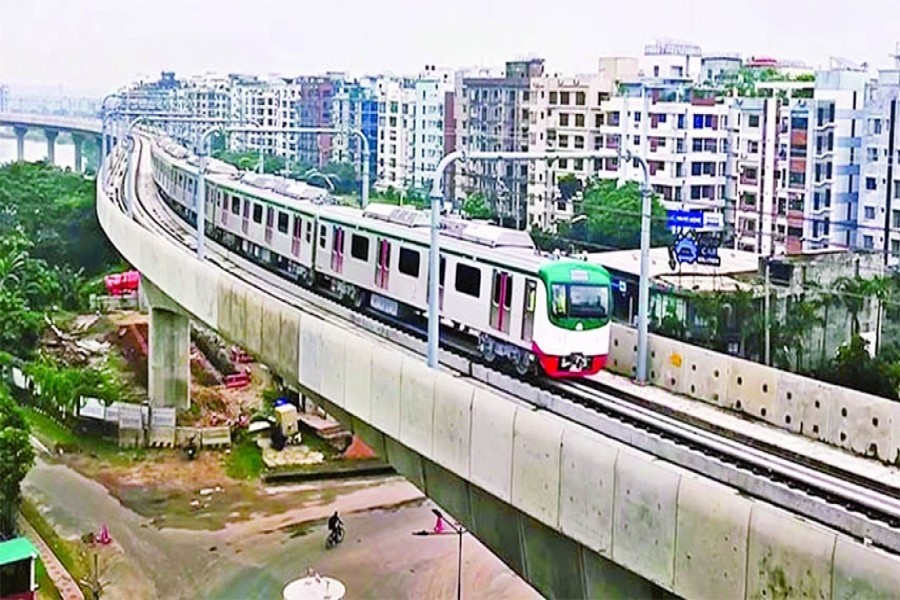Bangladesh Jatri Kalyan Samity, a passengers’ welfare organisation, has said that fixing the metro rail fare twice the rate of the city bus services is illogical and anti-people.
The group also asked to cut per km fare by 50per cent and the minimum fare reasonable as Prime Minister Sheikh Hasina is expected to inaugurate the country’s first ever metro rail service on December 28.
.jpg)
Mozammel Hoque Chowdhury, Secretary General of Jatri Kalyan Samity, said that their demands must be fulfilled before the inauguration of Dhaka Metro Rail in a press briefing in the capital on Saturday, reports UNB.
He said that Dhaka and India's Kolkata cities are quite similar in almost all indicators considering the socio-economic condition, per capita income, and GDP.
But the fare per kilometer of Dhaka Metrorail will be two times higher and the total fare will be four times higher compared to Kolkata Metrorail, he said.
“This will hamper passengers’ interests extremely, ramshackle bus companies will benefit, commuters will lose the ability to use metro rail regularly and hence the metro rail will fail to achieve its target to carry passengers,” said Mozammel.
Kolkata Metrorail authority clearly states in their website that the metro rail fare is the cheapest compared to the road transport fare, he said in the written statement.
“In Kolkata Metrorail lowest fare is Rupee 5 or Tk 6 but in Dhaka Metrorail the lowest fare has been fixed Tk 20. The maximum fare for Kolkata Metrorail is Rupee 25 or Tk 31 which is Tk 100 in Dhaka Metrorail,” he said.
Highlighting the example of different metro rails in Asia including in New Delhi and Kolkata, he said, “The fare is cheaper for these metro rail services of other countries compared to Dhaka metro rail because their construction cost was less.”
He said the common commuters want to know why Bangladesh spent so much on metro rail construction unlike competitive spending of other countries.
“Spending is being made on some mega projects unaccountably, while some unscrupulous businessmen are emptying the banks. As a result people have to pay a high price. The price of rice, pulses, oil, fish, meat in Bangladesh is twice, and in some cases more than three times compared to our neighbouring country India,” he added.


